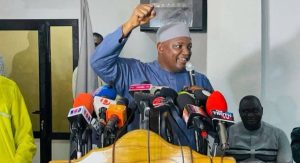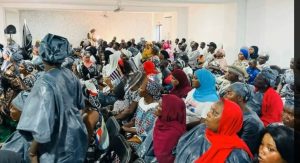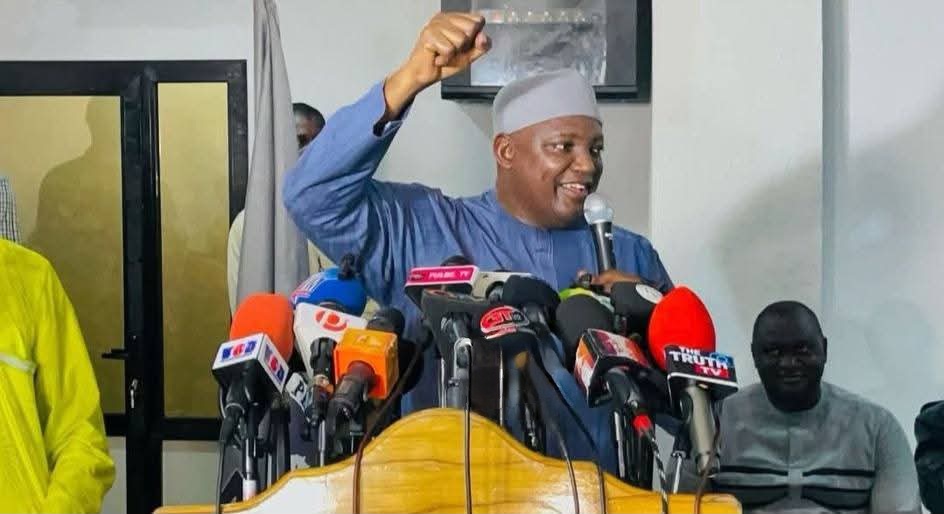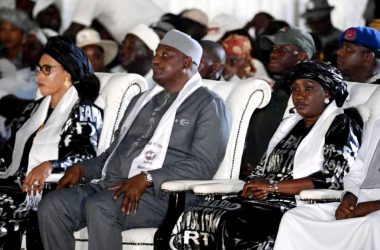The National People’s Party (NPP) Wednesday rolled out a welcoming mat for members of Boku Halat Women Association and a prominent opposition figure.
These developments were seen as significant boost to the ruling party’s grassroots support.
Boku Halat Women Association comprises a large and politically diverse membership and the association’s official alignment with the NPP was celebrated at a major event at the NPP HQ bureau in Bundung.
According to NPP officials, the joining of 804 women to the ruling party ranks further consolidates its base ahead of the highly-anticipated presidential polls next year.
The event was graced by several Cabinet Ministers and the NPP top brass, underscoring the importance that the party places on its newest members.
Ajaratou Sukai Jallow, president of the Boku Halat Women Association, said they made the best decision to join the NPP.
She applauded NPP official Maimuna Baldeh and other party officials “who supported us in realizing our goal to cross-carpet”.
Ajaratou Sukoi promised to attract more women to the NPP fold before the end of the year, signaling a dedicated effort to make her association’s impact felt within the new political home.
In another development, which could be described as a major political shift, Aja Fanta Mballow, former chairperson of the Coalition of Progressive Gambians(CoPG) and a former member of the proscribed pressure group 3 Years Jotna, also publicly endorsed President Adama Barrow.
Mballow stated that she has “now been brought to light after years of fighting as an opposition”.
Speaking at the joint event, the Secretary-General and Leader of the National People’s Party, President Adama Barrow, welcomed the new members with open arms, likening the event to a “naming ceremony”.

President Barrow stressed that the NPP is inclusive, adding that “anyone who joins the NPP joins a party owned by the Gambian people”. He appealed to long-time party members to “embrace the newcomers and to foster party unity” with the collective goal of developing the party and the country, at large.
Looking towards the future, Barrow emphasised the institutional strength of the party. He declared that the NPP is an “institutionalized party,” adding that after his tenure, “someone from the party will take over the mantle of leadership.” He cited examples from established political parties in South Africa and other countries around the world to support his “commitment” to democratic succession planning within the NPP.

This mass defection of politically diverse women, alongside the endorsement of a prominent former opposition figure, is seen as a significant momentum builder for the National People’s Party as the presidential polls draw closer.





